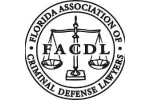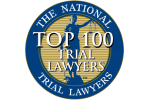to Save Yours
Healthcare Fraud
It is a Federal Crime to knowingly and willfully execute, or attempt to execute, a scheme or artifice to defraud a health-care benefit program, or to get any of the money or property owned by, or under the custody or control of, a health-care benefit program by means of false or fraudulent pretenses, representations, or promises. In English, if one defrauds a healthcare benefit program like Medicaid or Medicare and receives something of value pursuant to that fraud, you can be liable for a criminal sanction. Like insurance fraud, bank fraud, or wire fraud, an allegation of this like is a white collar crime, very likely leaving a lengthy and complicated paper trail that must be reviewed. In accord with most other Federal white collar crime fraud accusations, potential penalties with Healthcare fraud will largely be governed by Federal Sentencing Guideline 2B1.1 and the specific offense characteristics found within. Any Federal criminal allegation is extremely serious. An allegation of a white collar crime in a Federal court takes on an all new complexity. For that reason when one is looking to hire a criminal attorney to represent their interests it is imperative to hire a Federal healthcare fraud attorney who routinely appears in Federal court and has experience with white collar criminal allegations. Tampa Federal criminal lawyer Jason Mayberry has the experience and know how necessary to represent your interests if faced with a criminal allegation.
What is Healthcare Fraud and What are The Penalties?
Though healthcare fraud can be prosecuted under a number of Federal statutes, in 1996 the United States Congress enacted Federal Statute 18 U.S.C. § 1347. 18 U.S.C. § 1347 states that whoever knowingly and willfully executes, or attempts to execute, a scheme or artifice to defraud any healthcare benefit program or to obtain, by means of false pretenses, representations, or promises, any of the money or property owned by, or under the control of, any healthcare program, in connection with the delivery of or payment for healthcare benefits will be fined and could be imprisoned up to 10 years. If a violation of this statute results in serious bodily injury, the maximum prison term will be increased to 20 years. Specifically in a healthcare fraud case brought under the aforementioned statute, the government must prove that a defendant knew the claims submitted were, in fact, false. United States v. Medina, 485 F.3d 1291, 1297 (11th Cir. 2007).
At trial one can be found guilty of this offense only if all the following facts are proven by the government, meeting the beyond a reasonable doubt standard:
- The Defendant knowingly executed, or attempted to execute, a scheme or artifice to defraud a health-care benefit program, [or to obtain money or property owned by, or under the custody or control of, a health-care benefit program] by means of false or fraudulent pretenses, representations, or promises;
- the false or fraudulent pretenses, representations, or promises related to a material fact;
- the Defendant acted willfully and intended to defraud; and
- the Defendant did so in connection with the delivery of or payment for health-care benefits, items, or services.
How can We Help?
In any fraud case there is a prospect of mounting a defense of “Good Faith.” A good faith defense is a defense used to combat the allegation that there was an “intent” to defraud under element 3 of the jury instruction. In essence, it is a defense asserting an honestly held opinion or an honestly formed belief rather than an intent to defraud. If that is the basis of the fraud, there cannot be fraudulent intent – even if the opinion or belief is mistaken. Similarly, evidence of a mistake in judgment, an error in management, or carelessness can’t establish fraudulent intent. In order to request a jury instruction based upon this defense your Tampa Healthcare Fraud attorney must have established at trial, an evidentiary foundation to support the defense. At the end of the day, the government MUST prove the fraud was intentional or they cannot make their case. Federal criminal attorney Jason Mayberry is routinely in our Federal Court system. Put his experience to work for you. Contact Jason at 813-444-7435 or at 727-771-3847.














